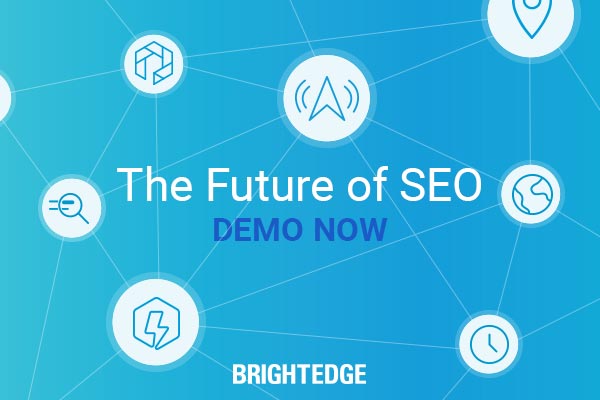Duane Forrester is an author and a prominent voice in the search marketing industry. As the head of the webmaster program at Bing, and with about 15 years in the industry, he's seen quite a bit of change.
with about 15 years in the industry, he's seen quite a bit of change.
Yet, some things remain the same -- like the importance of content -- while others things change, like what it means to create "excellent" content.
In this interview, we invite Duane (an upcoming speaker at Share) to give his thoughts on the constants and the changes in SEO.
The SEO Landscape
Andy Betts (AB): How much has the SEO landscape changed over the last year?
Duane Forrester (DF): In some ways a lot, but in other ways not much. This past year will be remembered as the “Year of Content.” So much conversation around how important content is, people moving budgets towards content efforts and so on.
And yet, for all that talk and action, content has always been important. Finally, though, businesses are starting to understand the downside to implicit or explicit shortcuts in this area.
In some instances, people had no idea that they were taking shortcuts, and it served to slow their success. Others who knew what they were doing, were outright hurt. In the end, though, SEO emerges as a better tactic from this intense focus. More people sharing ideas, more people investing more time and efforts truly aligned to giving a searcher what they seek.
And as if content weren’t enough, more and more companies are starting to hear the message around marking up content, and taking an action towards it. This is a future-proofing tactic that will serve websites well. As engines ramp up how they use that marked up data, richer consumer experiences emerge.
The winners from all those experiments in UX, SERP shuffles, etc., will stick around long term. But you’ve got to be marked up to play.
AB: What change has had the biggest impact for you and your company?
DF: I’m going to go with content, even though that has a double edge, as we’re a search engine. Better quality content helps us serve better results to searchers, increasing satisfaction.
Flip that around, and internally the company (Microsoft) has renewed its focus on content – what it is, what stories are told, how it’s shared and so on.
AB: How do you see the SEO and content space evolving over the next year?
DF: Don’t think for a second we’ve turned a corner on this topic. The importance of content is right at the top of the pile and should remain there indefinitely. Right next to usability.
While it’s tempting to think you’ve mastered content, and to seek what’s new and cutting edge, I’ll suggest that a lot of sites still have work to do on the basics. Timing, quality of content, answering searchers needs directly, simply and thoroughly. Creating the words is only one small part of this puzzle and the winners are the ones solving the Rubik’s Cube faster.
Claiming you’ve nailed one, two or even three sides doesn’t mean you’ve completed it. It means you’re on the right track. Close, but not across the finish line.
I often ask during presentations: Who in the room creates excellent content? Usually a bunch of hands go up. That’s when I tell them they’re likely wrong. They are not in a position to judge their content as “excellent.” Customers judge this – by engaging.
If people find your page, click on the result, then leave from that same page, for many websites that’s a fail – no conversion, no ongoing engagement, just a flash of bandwidth drowned by the deafening sound of the exit click.
If you’re nailing content, people want to engage with you more. They are compelled to consume more of it. You become a valued resource. And this is very hard to achieve.
AB: Do you have any tips on how marketers and businesses can adapt to the rapid shifts in our market?
DF: Stay focused on your own metrics. Don’t get jumpy because you read something online about yourself or others … unless, you know, that article about you is true. Then jump as high as you like.
Build a plan: think it through, then execute. Chasing after new ideas every week or month is a recipe for a bunch of unfinished projects.
Learn to predict the future. “Ah, yes, but if I could do that, I’d be rich and on a private island, Duane …” Yeah, yeah, now back down to earth. Predicting the future is an inexact art at best, but trend-watching and crossing that with an understanding of your consumer’s behavior can lead to some pretty interesting insights. Some of which will seem to border on the magical.
To help in this effort, you’ll need to comb through your own data to firmly understand patterns of behavior on your site. You’ll also want to watch for developments across topics that inform consumers, and relate to your products or services.
Now you’re in a position to start taking a stab at, “If Development A comes to be, then consumers may react as such, and their behavior with us/towards us may change like this.” It’s hardly exact, but it’s a skill. Practice it, and you’ll get better at it.
The Content Marketing Shift: Optimization, Measurement, Performance
AB: How are you aligning your content and search optimization efforts?
DF: I can tell you this: our focus is almost entirely on “content” and very little around what we all think of as traditional “SEO.” Yes, technical SEO gets looked at, but maybe not to the depth you might think. The goal in everyone’s mind is clear: we know our target persona and how do we serve them best?
AB: How critical is measurement of content in your organization?
DF: Very important. It’s measured across an impressive number of levels. From qualitative to quantitative, we track it. We train around storytelling, enabling more people to become voices. And we’re constantly testing; everything from features, to messages, to UX to engagement via social.
All that data feeds back to help everyone internally have access to more than just what they typically get exposed to directly. It helps that we have a culture of sharing and of building useful relationships internally, too.
AB: Tell me more about your view on the convergence of content and SEO.
DF: The reality facing businesses today is clearly defined by how consumers engage. Mobile is the leader now, and mobile queries follow that trend. Businesses need to ask themselves not just, “How does my site look on X device?” but also, “How does my content look in the site on X device?”
There are so many failed mobile experiences littering our lives today that it’s a wonder any brand keeps loyalty. In fact, this could be why so many smaller sites have become bigger in the last few years. The ability to more clearly deliver the content the customer wants, in the experience the customer has decided to have, will have long term impacts on success.
Not that this is easy to manage, mind you, but my advice is test, test, test, invest in usability, learn from consumer patterns and deliver unexpectedly great experiences.
About Your Session at Share 14
AB: Tell me more about your session.
DF: Ever wonder what Tesla occupants are searching for? Well I’ll tell ya … their No. 1 query is … well, you’ll have to come to the session to hear those tidbits.
And while it might sound interesting to hear the behavior of those types of searchers, the bigger story here is the move from mobile to mobilized. How technologies in place today are changing consumer interactions and expectations.
"In-car" is an extension of mobile, and opportunities exist right now to impact drivers and passengers. Guide them to your business, leverage SEO or online reviews for better positioning in those all-important moments just before a “local decision” is made and so on.
This is a bit beyond the typical “SEO 201” and “social media is king,” but it’s real and impacting businesses every day – whether they know it or not.
AB: Why Share – why do you attend?
DF: For me, this is about sharing useful information with the right audience. Share brings the right mix of people together and offers a format to engage in meaningful dialogue. It’s a great day when smart business people get together to talk about how to build success!
AB: What advice can you give Share attendees in order for them to make the most out of their experience?
DF: Come prepared. Know what you want to take back to your business – what do you need from other attendees and the speakers to move your business forward? Be practical, but honest.
Hydrate. Yeah, I know, but seriously. This stuff comes fast and furious; being alert means you can keep up and reap the benefits.
Mind the commute times. Nothing sucks more than missing the one session you really wanted to attend because of traffic.
From out of town? Layer your wake up calls. Two from the front desk 15 minutes apart, your watch (if applicable) and your phone.
Take notes. Good old fashioned paper and pen. Skip the live blogging, crafting of funny tweets and stay focused on getting the info you need. Unless of course, your job is to live blog. It’s super easy to get caught up in exciting conversations with people who speak your language, just don’t lose focus on your goals.
If you find yourself in an interesting conversation, make the connection – ask for a card, swap cards, whatever. Just be sure to follow up later that day with a connection on LinkedIn, etc. Don’t stalk, and don’t be needy, but if there’s something legitimately worth connecting over, make it happen.
The only dumb question/noob question/etc. is the one left unasked. No one on stage or off was born with their knowledge, so feel free to openly ask questions and learn. Be polite, but never fearful. If you’re thinking it, so are 10 others in the room. If you’re really embarrassed afterwards, offer to buy all the others who were thinking the same question a drink – you’ll have loads of friends then.
As a speaker, I can say we don’t care if you shave or if your hair is a bit off. We do care if you fall asleep during our sessions, though. That’s an ego crusher.
